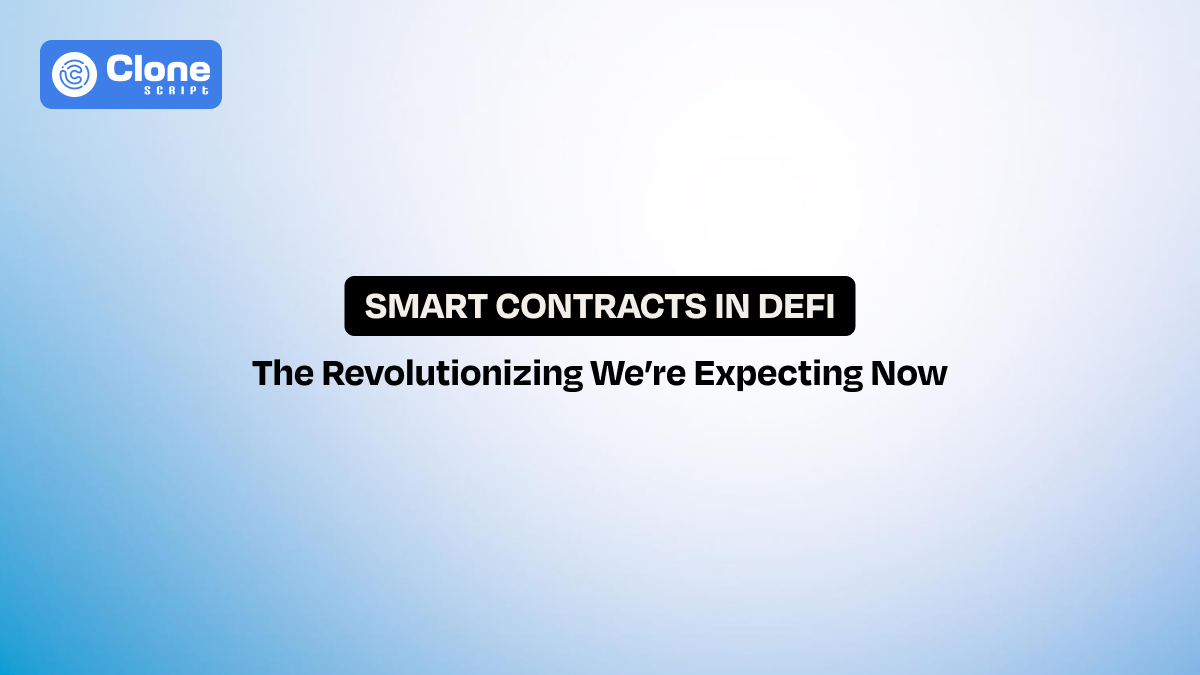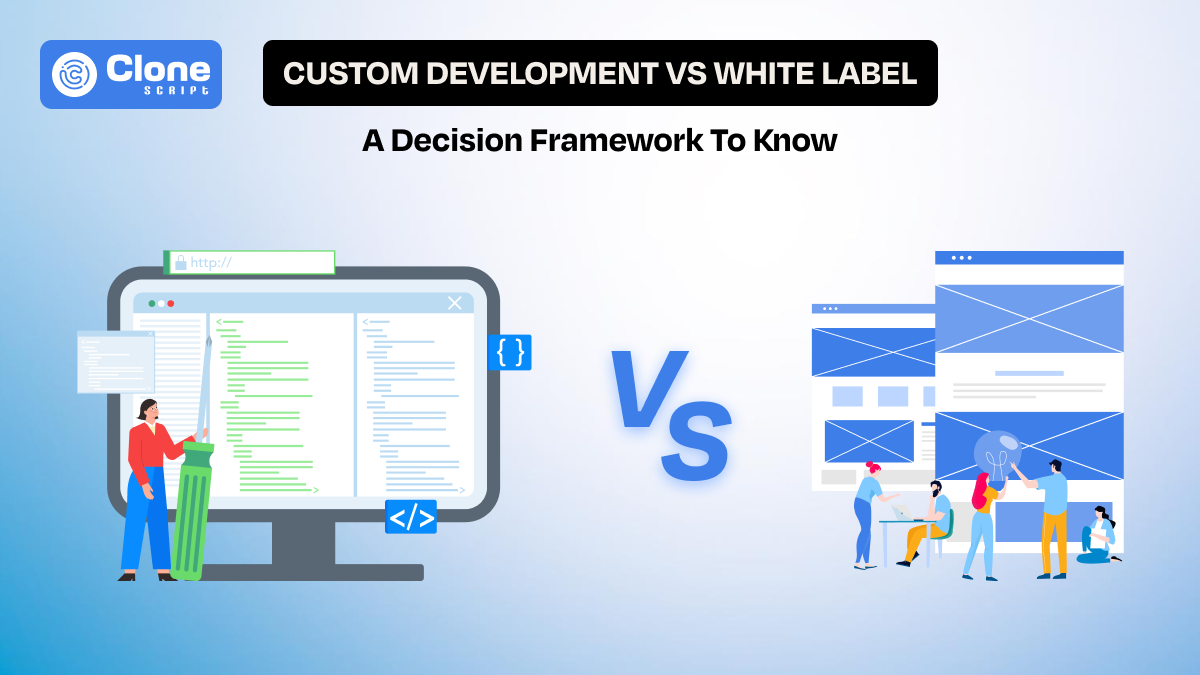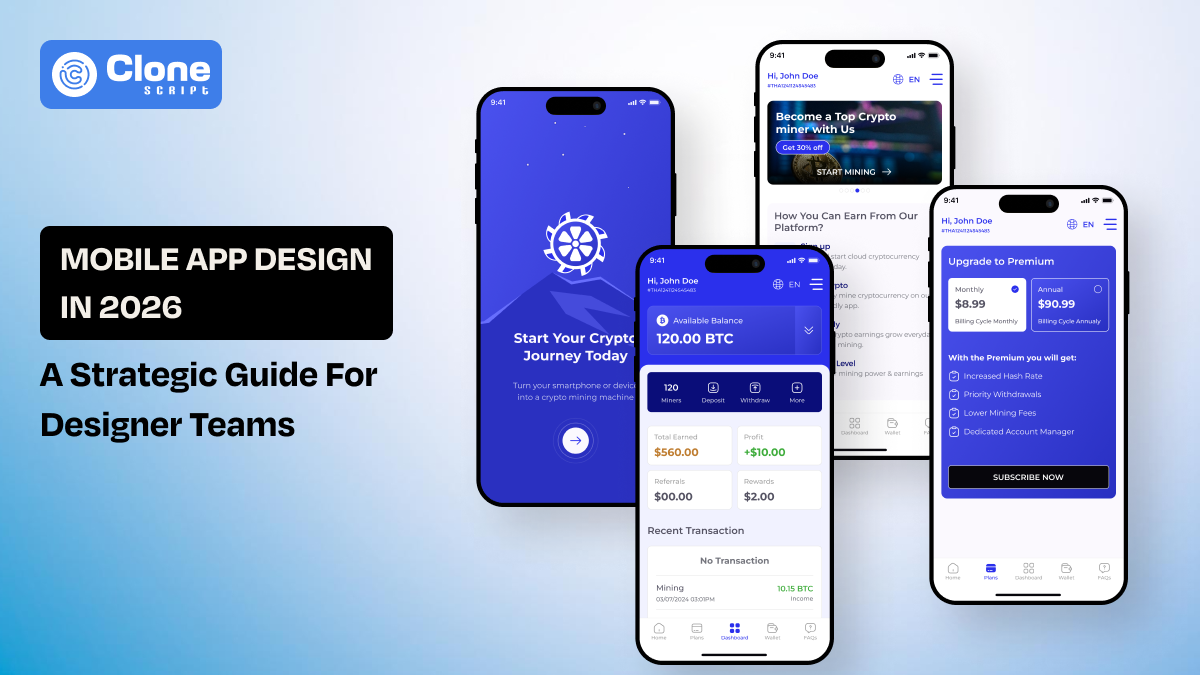How Smart Contracts Are Revolutionizing Decentralized Finance (DeFi)
The world of finance is evolving at a rapid pace. Decentralized Finance (DeFi) is the center of this transformation. Unlike traditional finance, which relies on banks and intermediaries, DeFi operates on blockchain smart contracts. These contracts allow people to borrow, lend, trade, and invest without depending on centralized institutions.
We will understand how smart contracts are used in DeFi, their benefits, real-world applications, and the challenges that lie ahead.
First, we have to know what a smart contract is about.
What Are Smart Contracts?
Smart contracts are self-executing pieces of encrypted code stored on a blockchain network. They automatically apply agreements once pre-set conditions are met. The best part is that it can be done without the need for lawyers, banks, or middlemen.
Let’s take an example.
A person wants to send 1 ETH to a DeFi lending smart contract. He entered the agreement, and when paying the amount, the contract instantly provides him with collateral or interest payments as programmed.
Once the contract is deployed, there’s no room for manipulating it or editing the conditions. This makes the smart contract fair and transparent to handle the transactions on the blockchain network.
Some key qualities of blockchain smart contracts include:
-
Automation: No manual intervention is required here to execute the transaction. Everything is done automatically when the pre-defined conditions are met.
-
Transparency: Anyone can view the contract’s rules on the blockchain. There’s no bias to favor any of the parties to take unfair advantage.
-
Security: Once deployed, the code cannot be altered without consensus. It means the safety of funds remains top-notch.
-
Programmability: Developers can design contracts for almost any financial activity, from insurance payouts to automated market making.
Do you know when the idea came to start deploying a smart contract?
In 1994, Nick Szabo introduced this concept. But Ethereum made them mainstream in 2015. Since then, smart contract development has reached new achievements and is powering thousands of decentralized applications.
What is DeFi or Decentralized Finance?
DeFi stands for Decentralized Finance, a financial system built on blockchain networks like Ethereum, Solana, and Binance Smart Chain. Instead of relying on banks, these apps (also called dApps) use smart contracts to manage transactions.
Key features of DeFi include:
-
Open access: Anyone with internet access can participate. There are no prerequisites to fulfill to become a community member.
-
Interoperability: Different DeFi apps can connect and build on one another. If the dApp is built on the Ethereum blockchain, then it can work for the Solana network, too.
-
Permissionless innovation: Developers can launch new financial products without needing licenses from regulators. Due to its decentralized nature and community support, this can happen, but necessary regulations have to be followed.
-
Non-custodial services: Users always retain control of their assets, unlike in traditional banks. They have the right to manage their held cryptocurrencies, NFTs, and other digital assets as per their preferences.
As of 2023, the total value locked (TVL) in DeFi smart contracts exceeded $40 billion, highlighting just how significant this movement has become. Ethereum remains the leader, but newer blockchains such as Polygon, Avalanche, and Arbitrum are gaining attention due to lower transaction fees.
Next, let’s explore the work of smart contracts.
What Are Smart Contracts in DeFi?
In DeFi, smart contracts serve as automated financial agreements that replace traditional intermediaries. They allow users to do:
-
Borrow and lend without banks.
-
Trade assets on decentralized exchanges.
-
Earn yields through liquidity pools.
-
Access insurance services without providers.
-
Participate in decentralized governance through DAOs.
The role of smart contracts in the DeFi ecosystem goes beyond transactions. They act as building blocks that interact with each other to create complex financial products. For example, a single DeFi user might use a lending contract, an exchange contract, and a yield farming contract all in one transaction—something impossible in traditional finance.
By allowing composability, smart contracts for decentralized apps provide flexibility and innovation unmatched by legacy financial systems.
The advantages of smart contracts keep the users and the platform properly organized.
Smart Contracts in DeFi: Key Advantages to Never Miss
Let’s look at the benefits of smart contracts in DeFi:
1. Trustless Transactions
Users don’t need to trust a third party—only the code. Everything is governed by transparent rules embedded in the contract. With more than 80% of DeFi users citing trust in code over institutions, this has become a key advantage.
2. Lower Costs
No banks or middlemen means reduced fees for transfers, loans, and investments. For instance, sending money across borders via banks can cost up to 7% of the transaction value, while smart contracts cut this down to less than 1%.
3. Global Access
Anyone with an internet connection can use smart contracts for decentralized apps, even if they live in regions with limited banking access. This financial inclusion is vital: over 1.7 billion people worldwide remain unbanked, and DeFi offers them alternatives.
4. Speed & Efficiency
Transactions happen in seconds or minutes, compared to days in traditional finance. For example, a cross-border loan approval can take weeks in banks, while a DeFi lending smart contract executes it instantly.
5. Composability
DeFi apps are like Lego blocks. Blockchain developers can combine different smart contract services to create entirely new financial solutions. This has given rise to an explosion of innovation in yield farming, liquidity pools, and synthetic assets.
6. Transparency & Security
All transactions and contract codes are visible on the blockchain. This transparency builds trust and accountability, validating that users always know where their assets are.
Real-World DeFi Applications Powered by Smart Contracts
Here are some use cases of smart contracts in DeFi that are shaping the financial industry:
1. DeFi Lending Smart Contracts
Platforms like Aave and Compound let users lend crypto and earn interest, or borrow against their assets. The smart contract development for DeFi ensures borrowers always over-collateralize loans, protecting lenders from defaults. In 2023, Aave reported more than $5 billion in total value locked, proving how critical lending has become in the DeFi landscape.
2. Decentralized Exchanges (DEXs)
DEXs such as Uniswap and SushiSwap use smart contracts to enable peer-to-peer (P2P) trading without intermediaries. Liquidity pools are governed by smart contracts that automatically adjust pricing using algorithms like Automated Market Makers (AMMs). Collectively, DEXs now handle billions of dollars in daily trading volume, rivaling centralized exchanges.
3. Yield Farming & Liquidity Mining
Smart contracts allow users to stake tokens in liquidity pools and earn rewards. This has become one of the most popular DeFi apps for passive income, with projects like Yearn Finance offering optimized yield strategies through interconnected smart contracts.
4. Decentralized Insurance
Projects like Nexus Mutual use secure smart contracts for DeFi projects to provide insurance against hacks and smart contract failures. In 2022, they covered over $720 million in policies, showcasing how DeFi can even disrupt the insurance sector.
5. Stablecoins
Stablecoins such as DAI are governed by smart contracts that maintain their peg to the US dollar using collateralized assets. With over $6 billion in circulation, DAI is a prime example of how stable, programmable money can fuel decentralized economies.
6. Decentralized Autonomous Organizations (DAOs)
Smart contracts also govern DAOs, allowing communities to vote on protocol changes. This democratizes finance, giving token holders decision-making power over entire platforms.
In essence, a smart contract working with decentralized finance keeps the user involved in community participation and makes the platform secure.
Security Challenges in DeFi Smart Contracts
While smart contracts bring immense potential, they also face security risks:
-
Code Vulnerabilities: A single bug can lead to multi-million-dollar hacks. In 2022 alone, over $3 billion was stolen from DeFi protocols due to poorly written contracts.
-
Oracle Manipulation: Many contracts rely on external data (like asset prices). If oracles are manipulated, attackers can exploit the system.
-
Rug Pulls: Malicious developers can deploy contracts designed to trick users into investing, then take the funds.
-
Gas Fee Exploits: High transaction fees during congestion can allow attackers to front-run trades, taking advantage of liquidity.
To address these, projects invest in:
-
Smart contract auditing by firms like CertiK and Quantstamp.
-
Formal verification to mathematically prove code correctness.
-
Bug bounty programs reward ethical hackers for finding vulnerabilities.
By combining innovation with safety, developers aim to build secure smart contracts for DeFi projects that users can trust for years to come.
The Future of Smart Contracts in DeFi
The future looks bright for smart contracts in decentralized finance. Several trends are shaping the next phase:
-
Cross-Chain DeFi: Smart contracts will connect multiple blockchains, improving liquidity and efficiency. Protocols like Polkadot and Cosmos are leading this interoperability push.
-
AI-Powered Smart Contracts: Artificial intelligence will help optimize financial strategies, detect vulnerabilities, and automate complex processes.
-
Regulation & Compliance: Governments may introduce frameworks for smart contract services, balancing innovation with security. For instance, the European Union’s MiCA regulation could shape future adoption.
-
Institutional Adoption: As smart contracts mature, banks and hedge funds may integrate them into financial products. Already, major firms like JPMorgan have experimented with blockchain-based lending.
-
Scalability Solutions: With layer-2 rollups like Arbitrum and Optimism, DeFi apps can process thousands of transactions per second at a fraction of the cost.
According to industry experts, the global DeFi market is projected to surpass $231 billion by 2030, with smart contracts driving the innovation.
Smart Contract Services for DeFi Projects
As DeFi continues to grow, businesses and developers often need specialized smart contract services to bring their ideas to life. Whether you’re launching a staking platform, distributing tokens, or building custom DeFi apps, having reliable solutions is essential. Here are two professional services offered by AllClone Script that can help power your next project:
1. Bulk Ethereum Token Sending with Smart Contracts
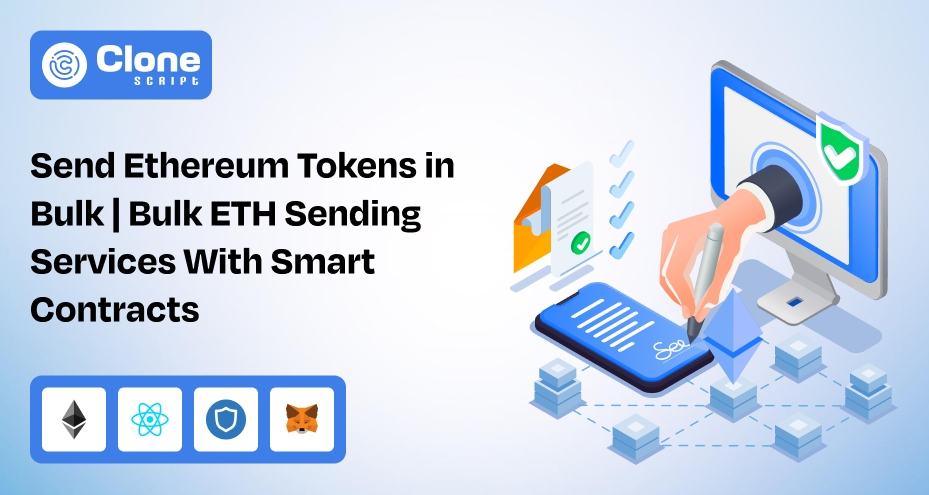
Distributing tokens to a large number of wallets can be time-consuming and expensive if done manually. This bulk Ethereum token sending service makes the process efficient by using blockchain smart contracts to handle mass transfers in a single transaction.
-
Fast & Cost-Effective: Save gas fees by bundling thousands of transfers together.
-
Secure & Transparent: Smart contracts ensure error-free execution with full on-chain visibility.
-
Perfect for Airdrops & Rewards: Ideal for token launches, giveaways, and reward distributions.
By taking this service, projects can scale token distribution effortlessly without worrying about security risks or operational bottlenecks.
2. BEP20 Staking dApp Development with Smart Contracts
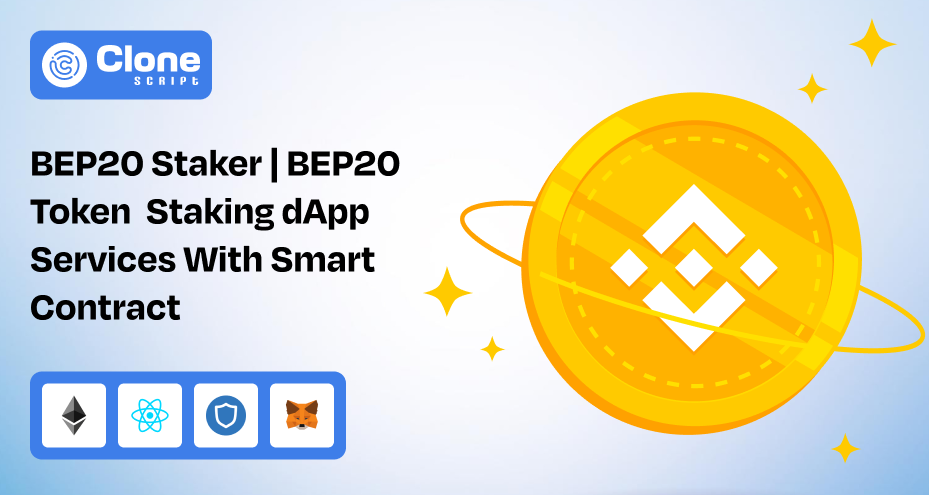
Staking has become one of the most popular use cases of smart contracts in DeFi, allowing users to lock tokens and earn rewards. With this BEP20 staking dApp service, you can launch your own staking platform on Binance Smart Chain.
-
Customizable Rewards: Set flexible reward rates for different pools.
-
Secure Smart Contracts: Audited and tested for reliability and protection against vulnerabilities.
-
User-Friendly Interface: Designed for seamless interaction, even for beginners.
-
Boost Community Engagement: Encourage holders to stake and stay invested in your project.
This service helps projects to build trust with their communities while unlocking new revenue streams through DeFi staking models.
Conclusion
Smart contracts are a working module of the DeFi ecosystem. By automating trust, eliminating intermediaries, and enabling open financial systems, they are reshaping how we think about money and financial services.
As we move toward a more decentralized world, one thing is clear: the role of smart contracts in DeFi is nothing short of revolutionary.
FAQs
- How costly is it to deploy a smart contract for DeFi?
Deployment costs vary from a few thousand to hundreds of thousands of dollars, depending on contract complexity, features, blockchain choice, audits, and ongoing smart contract maintenance.
- Can smart contracts in DeFi be updated once deployed?
Most smart contracts are immutable, but developers use upgradeable proxy contracts or governance-based upgrades to allow flexibility while still maintaining trust and transparency within DeFi ecosystems.
- How do DeFi lending smart contracts work?
DeFi lending smart contracts let users deposit assets into liquidity pools and borrow against collateral. They enforce collateral ratios, interest rates, and liquidations automatically, ensuring secure, fair, trustless lending.
- How secure are blockchain smart contracts for DeFi projects?
Well-audited smart contracts are secure, but risks remain. Security depends on thorough testing, auditing, and using trusted developers. Proper design reduces vulnerabilities and prevents potential DeFi exploits.
- What role do oracles play in DeFi smart contracts?
Oracles provide external data, like asset prices, to smart contracts. They are essential but vulnerable; reliable oracle services reduce risks of manipulation and strengthen DeFi protocols.
 BTC - Bitcoin
BTC - Bitcoin
 USDTERC20 - USDT ERC20
USDTERC20 - USDT ERC20
 ETH - Ethereum
ETH - Ethereum
 BNB - Binance
BNB - Binance
 BCH - Bitcoin Cash
BCH - Bitcoin Cash
 DOGE - Dogecoin
DOGE - Dogecoin
 TRX - TRON
TRX - TRON
 USDTTRC20 - USD TRC20
USDTTRC20 - USD TRC20
 LTC - LiteCoin
LTC - LiteCoin

